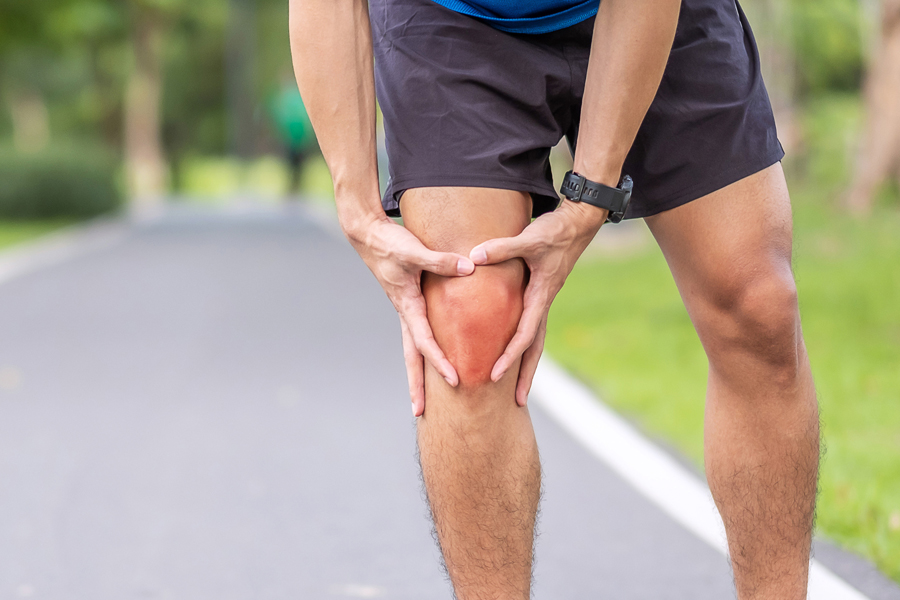
Musculoskeletal pain, stiffness, and injury are often the silent epidemic that occurs beneath the threshold of our consciousness and awareness. But when is it time to step beyond your general physician and see an orthopedic surgeon?
Understanding and seeking help from a professional can make a difference between temporary discomfort and permanent damage.
Orthopedic Surgeons—What They Are and Who Needs One?
Orthopedic surgeons are highly educated and trained in diagnosing, treating, and/or managing conditions of the bones, joints, ligaments, tendons, and muscles. From fractures and arthritis to spine conditions and sports injuries, they’ve got it covered.
Our Department of Orthopedics at DHEE Hospitals has the latest diagnostic equipment to perform complete, comprehensive tests and offer relief that’s more than fleeting—more like everlasting—for patients of all ages.
Here are the Signs You Need to See an Orthopedic Surgeon
Persistent Joint or Bone Pain
If you have continual long-term pain in the joints, knees, shoulder, hip, or back over weeks or repeatedly, it could suggest a more serious condition such as arthritis, cartilage damage, or chronic injury.
Don’t Ignore:
● The pain is aggravated by movement
● Discomfort during sleep
● Morning stiffness greater than 30 minutes
● Limited Range of Motion
If the joint or limb doesn’t move easily, that might indicate joint degeneration or inflammation. Limited movement in the shoulders, knees, and hips can negatively affect balance, mobility, and posture.
Problems Walking or Going Up Stairs : If you experience pain or strength loss in your knees, ankles, or hips when walking short distances or climbing stairs, it may be time to see an orthopedic specialist. These issues could be due to wear and tear of the joints, injuries to the ligaments, or misalignment of the bones.
Traumatic Injuries (Fractures, Dislocations, Sprains) : Orthopedic surgeons are the doctors you see for a sudden injury, such as an accident or a fall. Fractures, dislocated joints, or tears of a ligament should be professionally diagnosed and may require surgery for optimal recovery.
Sports Injuries : It’s essential not to brush off repeated or severe sports-related injuries such as ACL tears, tennis elbow, or rotator cuff injuries under the rug. These typically require high-resolution imaging and sometimes less invasive surgery to regain function.
Persistent Swelling or Bruising : Swelling, redness, or bruising that doesn’t get better with rest and an ice pack could be signs of internal bleeding, torn ligaments, or infection — all things an orthopedic surgeon should look at.
A Feeling of ‘Pins and Needles’ or Lack of Sensation : If you experience tingling or numbness in your hands, arms, legs, or feet, it could indicate a compressed or damaged nerve, often resulting from spinal problems or repetitive strain injuries.
The Orthopedic Conditions Treated Most Often
● Osteoarthritis and RA
● Osteoporosis
● Carpal tunnel syndrome
● Herniated discs
● Meniscus tears
● ACL/PCL injuries
● Frozen shoulder
● Hip and knee replacements
● Bursitis and tendinitis
What to expect while visiting an orthopedic surgeon?
● Physical examination.
● Imaging tests (such as X-rays, MRIs, or CT scans).
● History and symptoms.
● Discussion on lifestyle and physical activity
● Plan for treatment, medication, therapy, or surgery when necessary.
How does DHEE Hospitals provide orthopedic treatment?
We offer advanced testing by the best orthopedic surgeons in the city, providing individualized, minimally invasive treatment. From joint preservation to total replacement, patients are cared for holistically throughout their healing process. From outpatient surgeries to rehabilitation post-surgery, our orthopedic team ensures you are on your feet, active, and back in the game even faster.
FAQ’s
When is it imperative to consult an orthopedic surgeon?
If you are having chronic pain, recent trauma (a fall or accident), or joint deformities, or are not able to function efficiently, you need to see an orthopedic surgeon.
Do all orthopedic doctors recommend surgery?
No. A considerable number of orthopedic issues can be treated with conservative approaches such as physical therapy, medication, or lifestyle modification. Surgery is rare unless conservative (non-surgical) treatments have not been beneficial.
Can I see an orthopedic surgeon without a referral?
Yes, approximately 95% of hospitals with specialist orthopedic surgeons permit the patients to fix an appointment directly with an orthopedic surgeon without consulting with the local GP.
What should I bring with me to my initial orthopedic consultation?
Carry any previous medical records, imaging reports, and a list of your symptoms. Come prepared to talk about when the pain began, what makes it worse or better, and what drugs you are taking. Additionally, it is better to mention if you are allergic to any food or medicine.
How long does it take to recover from orthopedic surgery?
Recovery time varies depending on the type of surgery and your general health. Even a minor procedure might require a few weeks of rehab, while joint replacements could require several months.
Conclusion
Now that you are aware of what to expect, putting off consultation could give rise to complications, chronic pains, and loss of mobility. Understanding when you need to see an orthopedic surgeon puts you in control of your MS health. Whether you’re looking for a diagnosis, treatment, or surgery solution, you won’t find a better answer than early. Further, the hand of trust with professionals at DHEE Hospitals takes you through your recovery and makes you move from pain.